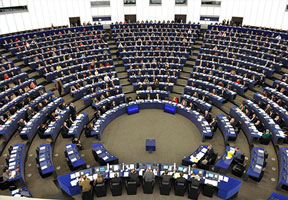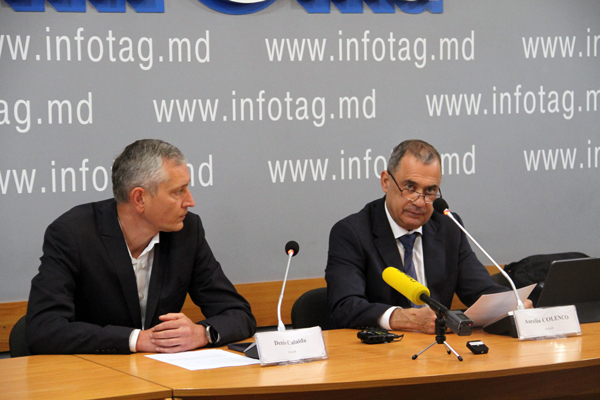Politics
EUROPEAN PARLIAMENT SUGGESTS APPLYING PERSONAL SANCTIONS AGAINST SOME MOLDOVAN POLITICIANS

The European Parliament has proposed to impose personal sanctions against certain Moldovan politicians. In the Resolution adopted on Wednesday, the European Parliament proposed to consider this question to the European Council in the context of the bank fraud investigation, and called on European Union countries to render their support to the investigation in Moldova.
The European Parliament reiterated its calls, based on the findings and recommendations of the first and second Kroll reports, which should be published in full, for a swift and transparent prosecution of all those responsible for the USD 1 billion bank fraud unveiled in 2014, as well as the recovery of stolen assets.
The European Parliament "takes note of the strategy on asset recovery adopted by the Moldovan authorities but notes with concern that the investigation into this case has been conducted rather ineffectively; stresses the need for the courts to stop failing to follow up on solid evidence and to promptly examine the cases that are pending or undergoing investigation, notably that of Ilan Shor, in open hearings; emphasizes that the political choice to bail out the banks with public finances further increased the severe loss of trust in Moldovan politics; calls on the Council to consider personal sanctions and on relevant EU Member States to provide support to the investigation".
The forum called on the EEAS and the Commission "to set up, subject to progress on democratic standards, a dedicated EU Support Group for Moldova, in order to increase the delivery of expertise, notably on the approximation of Moldovan legislation with that of the EU, and to coordinate, when the conditions are fulfilled, the delivery of financial assistance to Moldova in support of the implementation of the AA".
The European Parliament urged the EEAS and the Commission to boost internal capabilities to step up monitoring of the implementation of the AA, notably through a significant increase in dedicated human resources, as well as to move towards a qualitative assessment of progress, notably through the introduction of screening processes to assess the level of alignment with the EU acquis that is actually achieved as required by the Association Agreement.
























Add Comment